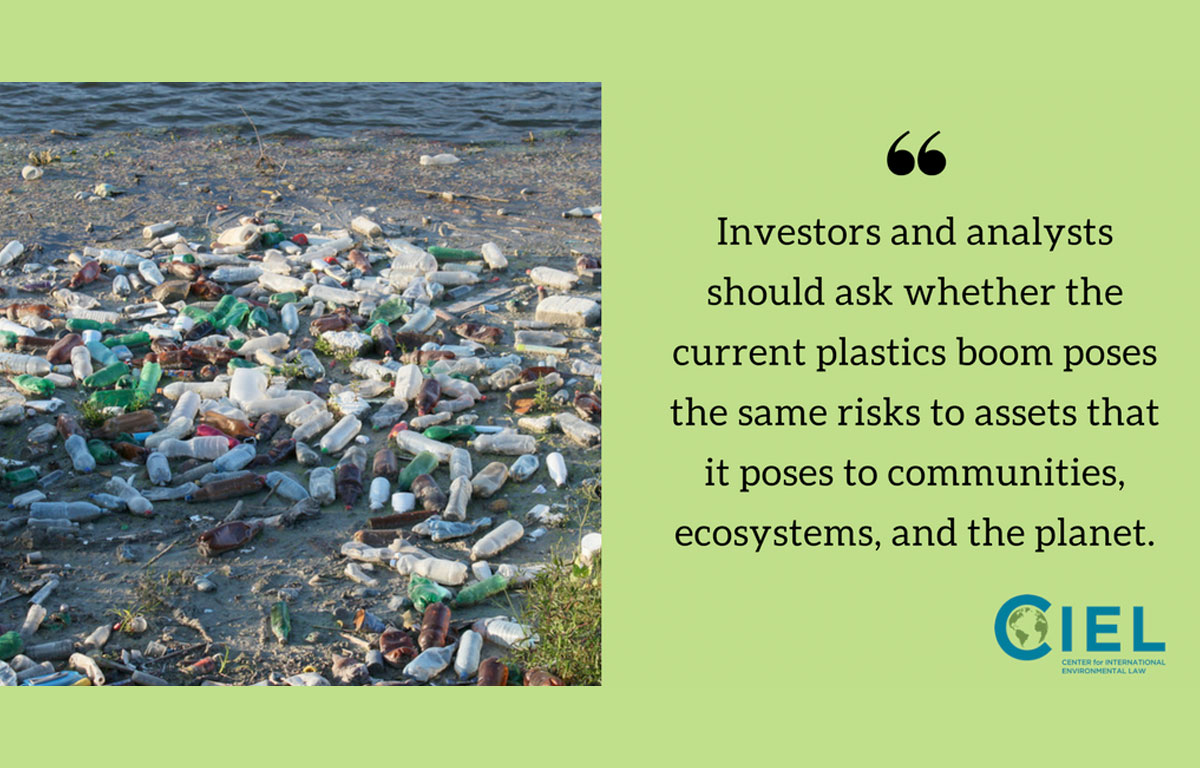Around the world, countries, cities, and individuals are ramping up efforts to phase out fossil fuels, but as they do so, the impacts of fossil fuel phase-out have gone largely unexamined for the plastics industry.
Almost all plastics are formed from chemicals that begin as fossil fuels. As end products of the fossil fuel supply chain, plastics too will be profoundly disrupted by global efforts to reduce fossil fuel consumption and confront climate change. As the world grows more alarmed by the accelerating plastic pollution crisis and is taking steps to reduce — or eliminate — plastic pollution, the fossil fuel, petrochemical, and plastics companies are making huge investments in additional production capacity, especially in the United States. The shale gas boom has fueled a massive influx of investment in new and expanded plastic production capacity because it dramatically reduced the price of ethane, a by-product of natural gas production that is an important chemical for producing plastic.
Investors in this plastics boom rely on two assumptions: first, that inexpensive supplies of ethane will remain readily available for the foreseeable future, and second, that demand for plastic products will continue to increase. Both of these assumptions reflect a belief that the business-as-usual scenario will continue into the future. However, they ignore the rapid pace of change in both global efforts to curb fossil fuel use and global attitudes towards plastic consumption. The predictable consequences of these changes — reduced production of fossil fuels and reduced demand for plastic products — affect the profitability (and viability) of these new proposed facilities.
Even small changes in fossil fuel prices or supplies can have outsized impacts on plastic production. The changes that may occur in the fossil fuel industry, however, are far from small. Substantial evidence is accumulating that fossil fuel phase-out is already underway: The price of renewables is declining, the effectiveness of batteries and other storage options is improving, and nations, cities, corporations, and civil society organizations are making commitments to reduce emissions, produce low-carbon products, and shift their capital away from fossil fuels. These trends, among others, indicate that the transition away from fossil fuels is already happening, and those planning investment decisions over even moderate time horizons should take this transition into account.
There is also growing awareness of the severity and urgency of the plastics crisis. Bans or taxes on plastic bags, microbeads, or buds (the stems of cotton swabs) are proliferating, including across nations in the Global South, where the plastics industry plans much of its future consumer growth. The United Kingdom and the European Union have both announced plans to eliminate all unnecessary single-use plastic waste over the next decades. On the international stage, the United Nations Environmental Assembly formed a working group to address marine plastic pollution, with the possibility of creating a binding, international treaty to tackle the problem on a global scale. These developments, among others, show the global community is taking the issue of plastic waste seriously, which challenges industry assumptions of unfettered growth in plastic consumption.
Despite these social, political, and economic changes, the petrochemical industry has not changed course. These companies have promised shareholders and investors that these massive, expensive projects will yield high returns over the long term. They have promised local communities jobs and development. Yet the planned build-out of additional capacity may be not only unnecessary, but also financially imprudent.
With these global changes underway, companies and investors should ask themselves: Does the plastics boom pose the same risks to assets that it poses to people and the planet?
Originally posted by Steven Feit, Staff Attorney at CIEL. Originally appeared in http://www.ciel.org/new-investments-plastic-deserve-greater-scrutiny/




